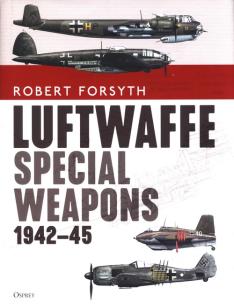- Regulamin
- Koszty dostawy
- Kontakt
- Dziś w ofercie 234 763 produkty
KSIĄŻKI
- Albumy
- Beletrystyka
- Biografie
- Dla dzieci i młodzieży
- Edukacja
- Ekonomia i biznes
- Ezoteryka
- Historia
- Informatyka
- Kalendarze
- Komiksy
- Kryminał i sensacja
- Kultura i sztuka
- Literatura faktu
- Literatura kobieca
- Literatura piękna
- Medycyna
- Nauka języków obcych
- Nauki humanistyczne
- Nauki przyrodnicze
- Nauki ścisłe
- Podręczniki
- Poradniki
- Prawo i administracja
- Przewodniki i podróże
- Psychologia
- Religia
- Sport
- Technika
- Zdrowie i uroda
ZABAWKI
- Artykuły dla niemowląt
- Bączki
- Bujaki i skoczki
- Ciągnij / pchaj
- Dla niemowlaka
- Grzechotki i gryzaki
- Karuzele i pozytywki
- Maty i centra zabaw
- Projektory i lampki
- Sortery i piramidki
- Zabawki
- Edukacyjne i kreatywne
- Figurki
- Klocki
- Lalki
- Pojazdy
- Pluszaki i maskotki
- Sport i rekreacja
- Zabawa w dom
- Zabawki drewniane
- Puzzle
- Do 200 elementów
- 201-500 elementów
- 501-1000 elementów
- Ponad 1000 elementów
- Puzzle 3D
ART. PAP
- Artykuły biurowe
- Artykuły piśmiennicze
- Bloczki i kartki samoprzylepne
- Dziurkacze
- Kalkulatory
- Nożyczki i nożyki
- Skoroszyty
- Teczki
- Wizytowniki
- Zszywacze
- Artykuły szkolne
- Akcesoria szkolne
- Modelowanie
- Notatniki i zeszyty
- Piórniki
- Plecaki i torby
- Pojemniki na śniadanie
- Pomoce naukowe
- Przybory matematyczne
- Przybory rysunkowe
- Upominki i gadżety
- Akcesoria do książek
- Artykuły balowe
- Breloki i zawieszki
- Drobiazgi, różności
- Kubki
- Oferta Świąteczna
- Papeteria, kartki i naklejki
- Skarpetki Many Mornings
- Upominki
GRY
MULTIMEDIA
- Audiobooki
- Beletrystyka
- Biografie i wspomnienia
- Dla dzieci i młodzieży
- Fantastyka
- Filozofia i religia
- Historia
- Literatura faktu i reportaż
- Poradniki
- Sensacja i kryminał
- Filmy DVD/BD
- Animowane
- Biograficzne
- Fantasy
- Horrory
- Komedie
- Romanse
- Science Fiction
- Sensacyjne / kino akcji
- Thrillery
- Muzyka CD
- Alternatywna
- Blues
- Dla dzieci
- Jazz
- Klasyczna
- Piosenka aktorska i poetycka
- Pop
- Rock
- Świąteczna i kolędy
- Akcesoria GSM
- Głośniki
- Kable i adaptery
- Klawiatury
- Myszy
- Słuchawki
PROMOCJE
ZDROWIE
LEGO
- multiszop.pl \
- KSIĄŻKI \
- Historia \
- Militaria

Luftwaffe Special Weapons 1942-45
Autor: Forsyth Robert
Wydawca:
Osprey Publishing Ltd
ISBN:
9781472839824
EAN:
9781472839824
oprawa:
Twarda z obwolutą
format:
19.5x25.0cm
język:
angielski
liczba stron:
272
rok wydania:
2021
(0) Sprawdź recenzje
Opis produktu
Zasady bezpieczeństwa
As the course of World War II turned against the Third Reich after Stalingrad some of the most inventive and radical proposals, and designs, were put forward by armaments manufacturers, scientists and technicians, aircrew and even private individuals to the Reichsluftministerium (German Air Ministry) for consideration. Some proposals were destined never to leave the drawing board, while others not only underwent trials but were issued to operational units and used in action.
In this fascinating new book, leading Luftwaffe historian Robert Forsyth examines the many different types of weapons that comprised the Luftwaffe's increasingly potent arsenal during the second half of the war. This was the period that saw the development and adoption of aerial torpedoes, wire-guided rockets and missiles, batteries fired by photo-electric cells, chemical weapons, composite bombers and air-launched flying bombs.
CENA:
157,98
zł
Cena detaliczna:
198,00 zł
20%
rabatu
Najniższa cena z ostatnich 30 dni: 158,38 zł
Produkt niedostępny
Uwaga!!!
Ten produkt jest zapowiedzią. Realizacja Twojego zamówienia ulegnie przez to wydłużeniu do czasu premiery tej pozycji. Czy chcesz dodać ten produkt do koszyka?


Wybierz wariant produktu
